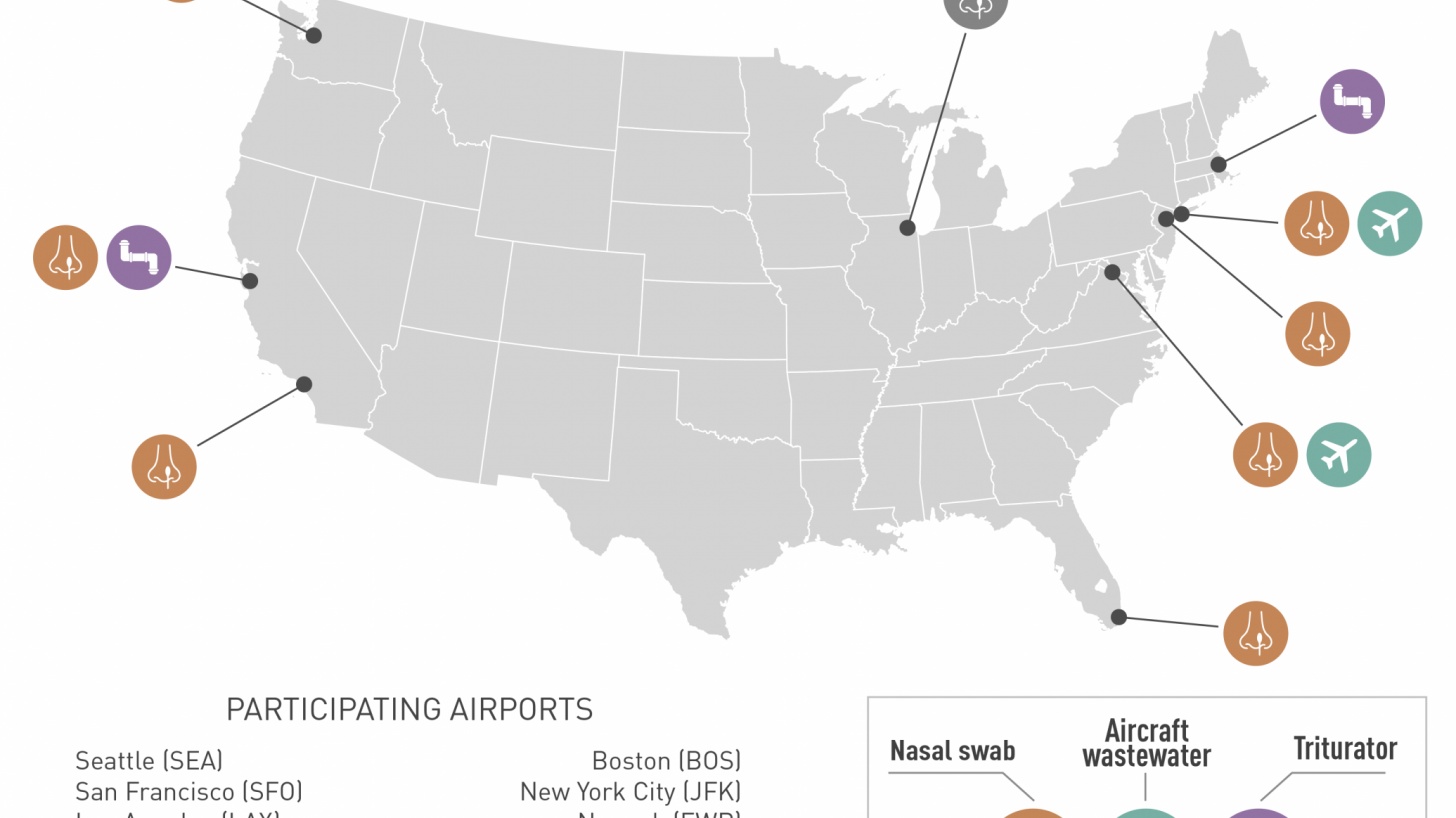Genomic Surveillance Lands at Chicago and Miami Airports

In 2021, health officials started testing airline passengers who passed through a New York airport to identify imported emerging infectious diseases, part of the U.S. national biosecurity initiative.
Over the past three years, more than 300,000 travelers from over 135 countries have participated each year in the U.S. Centers for Disease Control and Prevention (CDC) Traveler-based Genomic Surveillance (TGS) program.
The TGS has been offering testing services in Los Angeles, Newark, Seattle, Boston, San Francisco, NYC (JFK), and Washington, DC (IAD).
As of March 12, 2024, the TGS expansion includes Miami and Chicago airports.
International travelers arriving at these airports volunteer to self-collect nasal swab samples, which are shipped to a laboratory network for reverse transcriptase polymerase chain reaction testing.
Positive samples undergo whole genome sequencing to determine virus variants.
Selected TGS samples are then shared with the CDC's laboratory, where they undergo viral characterization, which can provide information about a new variant's transmissibility, virulence, and response to current treatments or vaccines.
However, program participants are not notified of their test results.
The key benefit of the $37 million budget airport testing program is expedited information sharing with public health authorities to help control disease outbreaks before they cause widespread impact.
During the U.S.'s 2023–2024 respiratory season, the TGS conducted an enhanced multipathogen nasal sampling pilot, which tested for Flu A/B, RSV, SARS-CoV-2, and other respiratory pathogens.
An example use-case is the respiratory syncytial virus (RSV) season.
Each year, RSV circulation in the U.S. begins in Florida in the fall, then transitions to the southeast and later to the north and west regions. With the enhanced TGS, health officials can learn when RSV is spreading via air travelers.
Furthermore, RSV vaccinations could be promoted in targeted cities.
Additionally, the CDC has conducted airplane wastewater sampling at San Francisco and Boston airports since August 2022. Positive samples undergo whole genome sequencing to determine variants.
This airplane wastewater program is expanding from a pilot phase to broader implementation in 2024.
The TGS, led by the CDC's Travelers' Health Branch, is a public-private partnership. It collaborates with XpresCheck (an airport-based testing company) and Concentric by Ginkgo (a network of over 60 laboratories with genetic sequencing capability). The companies may expand the program to check for more different disease-causing germs.
"We are thrilled to have the opportunity to take the TGS program to the next level. Multipathogen biomonitoring expands this critical biosecurity infrastructure for the United States," said Matt McKnight, General Manager for Biosecurity at Ginkgo Bioworks, in a press release on March 12, 2024.
The CDC's Advanced Molecular Detection Program supported the pilot program when it launched in September 2021.
Our Trust Standards: Medical Advisory Committee

